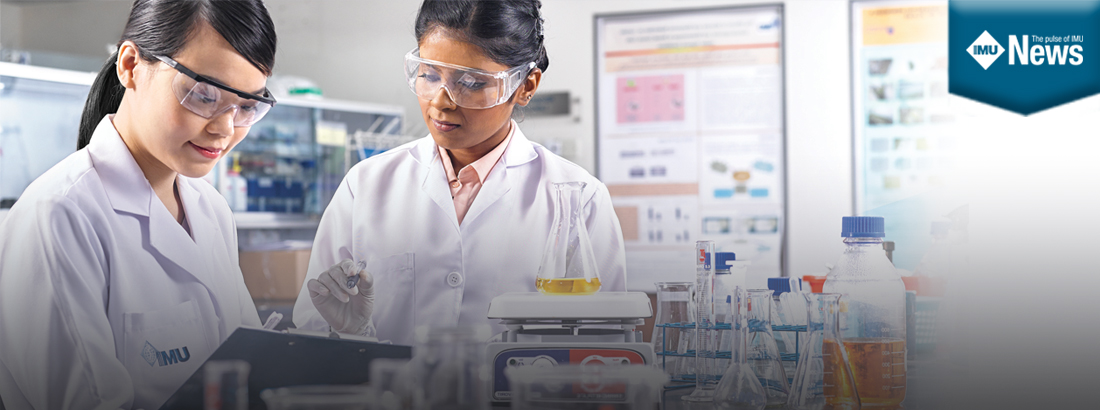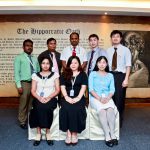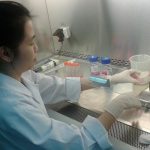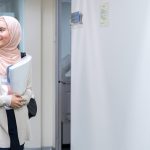Continuing your education will help advance your career and while it certainly won’t be easy, there are many possibilities to earn a master’s degree without compromising your career. Many employers recognise the value in continued education for their employees, and even more so if the programme does not take employees away from the job responsibilities.
As a leading private medical and health sciences university in this region, the International Medical University (IMU) offers weekend postgraduate programmes, providing an opportunity for working adults to enhance knowledge and work-ready skills for advancing their careers in Industry or Academia. One of these programmes is Master of Science in Analytical and Pharmaceutical Chemistry (MAPC).
Jeyashanthini Nalaiya, an assistant manager at a local pharmaceutical company, earned her master’s degree in Analytical and Pharmaceutical Chemistry with distinction from IMU. She said, “The programme gave me an opportunity to carry out my research project at my work place under the co-supervision of an experienced researcher in my company. The programme gave me the flexibility to balance out my work with my studies. I was given the option to choose the field of research that is best suited for my workplace needs and area of interest and expertise.” Wong Hiew Yi, a regulatory affairs executive, alumna of the University of Strathclyde and a graduate student at IMU, is currently pursuing her postgraduate studies in Analytical and Pharmaceutical Chemistry. Wong said, “One of the main hurdles for students considering to pursue postgraduate education while retaining their full-time job is to find schools that accommodate their work schedule. The weekend classes are supplemented with an excellent e-learning platform that enabled me to manage my time for both work and learning. I am impressed with the support and guidance of the faculty which helped me to sail through the first two semesters of my study with ease and I hope to excel in the research area of my interest in the final semester.”
“As the classes are delivered on weekends, I was given the opportunity to utilise my time during the weekdays to be a part of an on-going research project for the discovery of neuroprotective agents. As a research assistant, I am able to apply the knowledge and skills obtained through the programme’s coursework while carrying out the externally funded research project under the close supervision of principal investigator,” said Tan Khaishin.
After completing his undergraduate course at University of Queensland, Khaishin progressed to a master’s degree at IMU and recently graduated with distinction in MAPC. “Earning a distinction means a lot to me. It makes my graduation unique and memorable,” he said.
“During the course I had the opportunity to enhance my knowledge and skills in the area of drug design and synthesis. The well-designed CAL sessions with hands-on training in molecular modelling using Schrodinger, an industry leading software, helped me to carry out an independent project which resulted in a good publication,” said Ahmad Junaid. After completing his Master’s degree with distinction in Analytical and Pharmaceutical Chemistry in IMU, Junaid obtained scholarship from Monash University Malaysia to pursue his PhD. Yamen Al Khateeb, an international student from Syria, said, “My employer sponsored my masters to advance my skills in the research area of bioavailability and pharmacokinetics of investigational new drugs. The IMU has excellent reputation in Medical and Health Sciences education along with good research facilities with access to sophisticated equipment, such as HPLC, LCMS and NMR, and faculty with years of experience in industry. Hence, I chose to pursue my masters at IMU”. Yamen recently obtained Master’s degree and would like to earn his PhD in the near future.
According to Muna Ali Othman Salem, a pharmacist from Libya, “postgraduate studies at IMU expanded my knowledge and skills in separation sciences, drug design and synthesis. I also had the opportunity to carry out part of my research project in a well-established research university on collaboration. This opportunity helped me to develop a range of essential skills to carry out bioassays for pharmacological evaluation of small molecules”.
The MAPC programme was developed primarily for working adults who would like to upgrade their qualifications while working full-time. Through this course the student will be able to acquire specialised knowledge and skills in modern analytical techniques which could be used to detect, identify and quantitatively determine drugs and related substances. This mixed mode master’s programme, delivered only on weekends, also attracts fresh graduates. The minimum duration of this programme is 18 months with an option for the students to enrol into either the entire course or selected modules.










